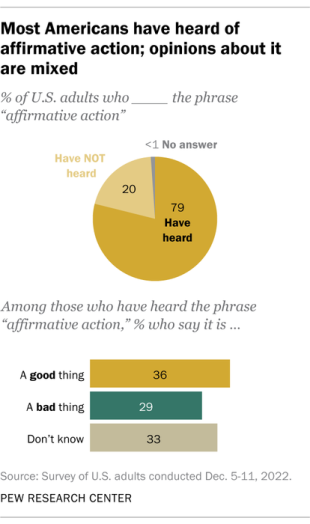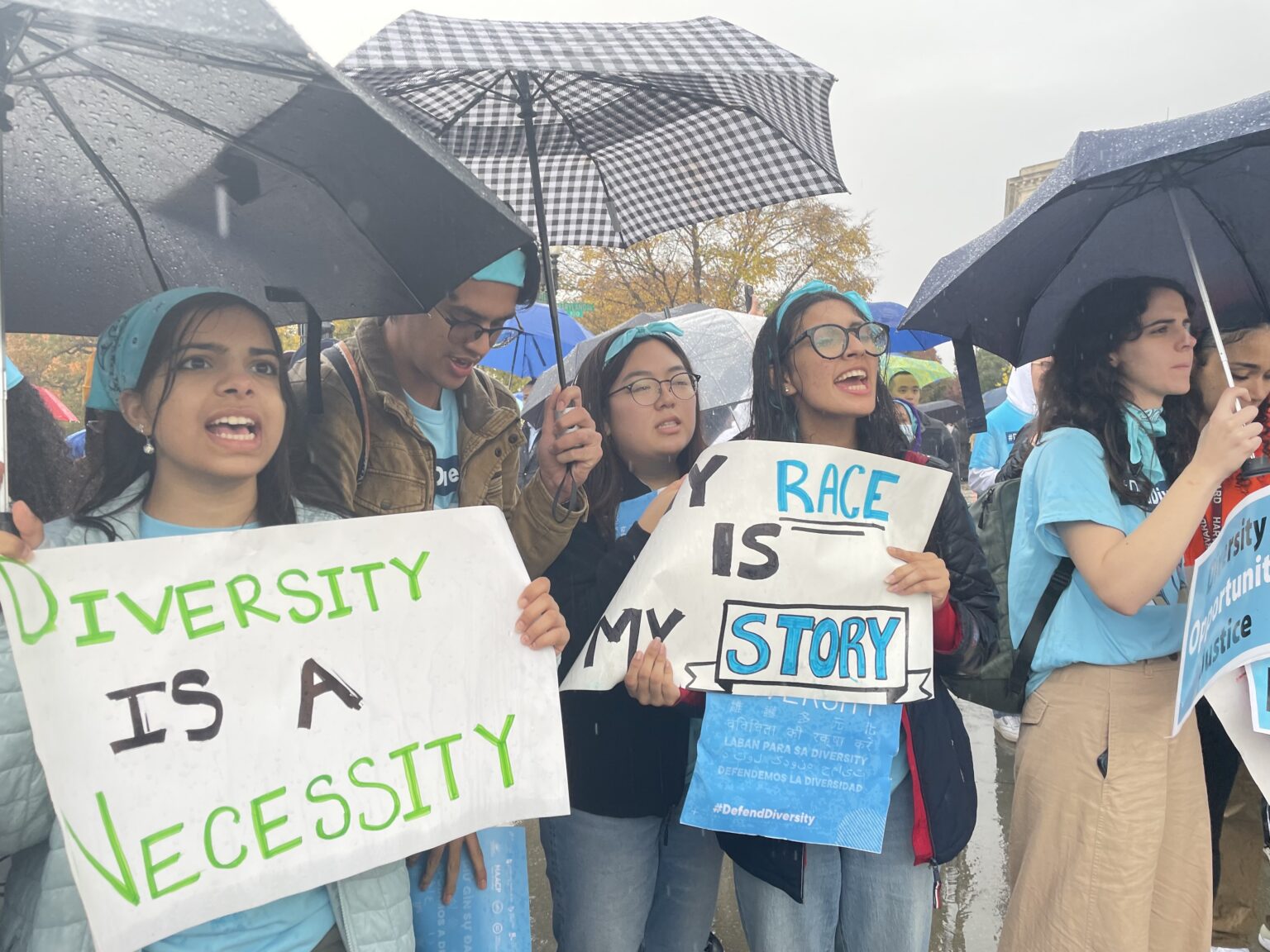Affirmative action, a set of policies designed to level the playing field for minorities in education and employment, remains a hotly debated topic in the United States. Public opinion is complex, with strong feelings on both sides.
Let’s delve into the data to understand how Americans view this enduring policy.
On the surface, there seems to be a lot more general support. Gallup polls consistently show a majority (around 60%) favoring affirmative action programs for racial minorities. This aligns with the underlying principle of equal opportunity resonating with many Americans. Pew Research found that 75% believe promoting racial diversity in workplaces is important.
However, the picture gets murkier when we look deeper. These positive views often soften when the specifics of implementation are introduced. A 2022 Pew Research Center survey revealed a significant shift in opinion when race is explicitly mentioned in the context of college admissions. Here, only 33% of Americans approved, with a surprising number (50%) disapproving. This suggests discomfort with using race as a factor, even if the goal is diversity.

Racial demographics also play a significant role. Black Americans overwhelmingly support affirmative action (around 47%), unsurprisingly as it aims to address past discrimination. Conversely, a majority of white Americans (57%) disapprove. Asian Americans are more divided, with roughly half disapproving and a significant portion unsure. This might reflect concerns about affirmative action potentially putting them at a disadvantage.

The debate also hinges on the effectiveness of affirmative action. Proponents argue it has increased diversity in colleges and workplaces, leading to a richer exchange of ideas and experiences. They point to statistics showing a decrease in the Black-to-white graduation rate gap at universities with affirmative action.

Opponents argue that affirmative action creates reverse discrimination, where less qualified candidates are chosen solely based on race. They believe it undermines meritocracy and can lead to resentment among those who feel they were unfairly passed over.
Finding common ground appears challenging. One potential solution lies in focusing on socioeconomic factors instead of race. Affirmative action programs could prioritize students from low-income backgrounds, regardless of race. This approach could address historical disadvantages without solely relying on racial categories.
Ultimately, the conversation around affirmative action is a reflection of America’s ongoing struggle with racial equality. Finding a solution that promotes diversity while ensuring fairness requires open dialogue and a willingness to consider all perspectives.

I agree that affirmative action is a complex issue and there are both positives and negatives to it. All racial groups are impacted whether it is placed into policy or not. I think the solution you proposed could be effective because I think socioeconomic background plays more of a role than race does. People from low-income backgrounds have fewer opportunities in high school, and that serves as a disadvantage when applying to college. Is there a specific way that this could be implemented in college applications?